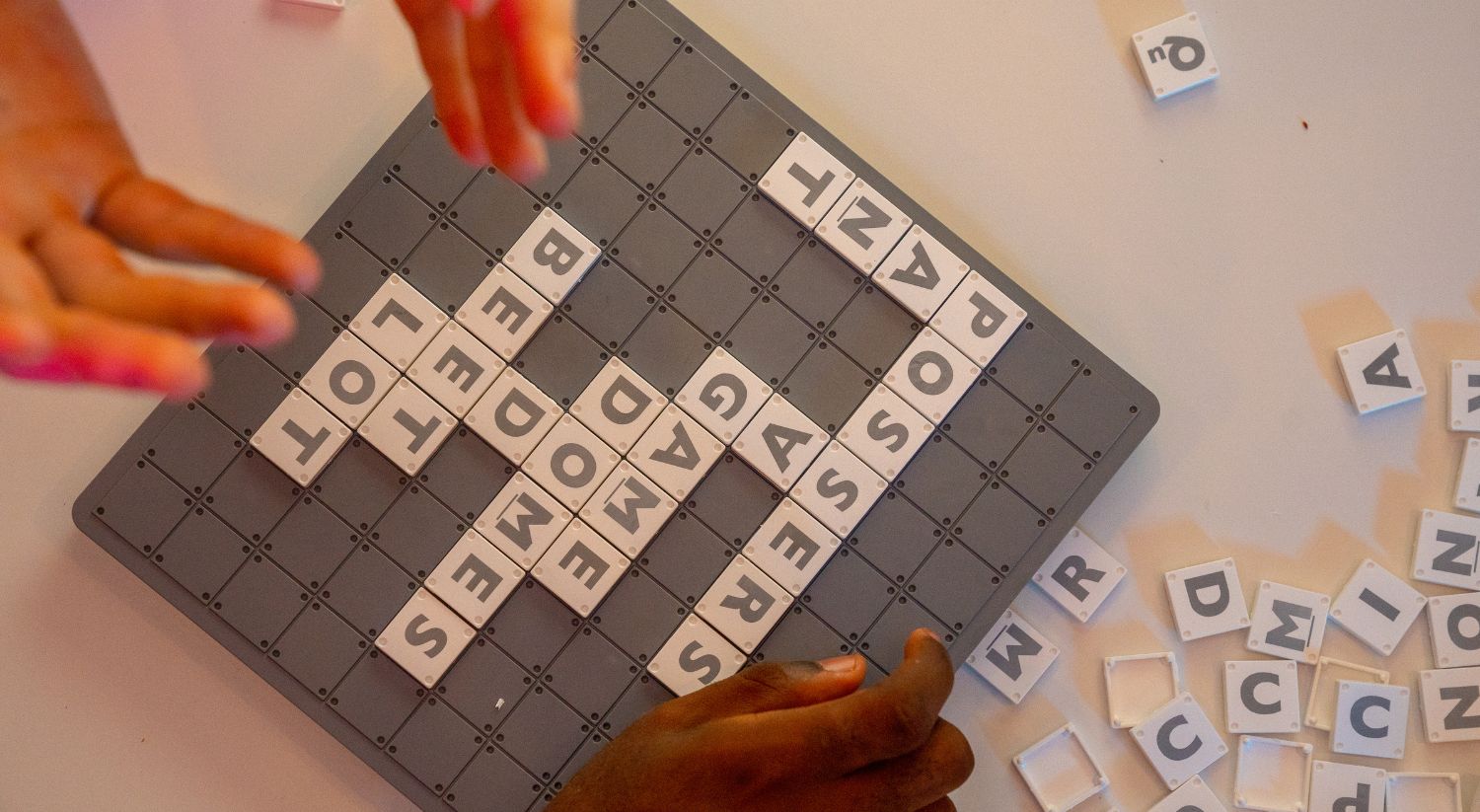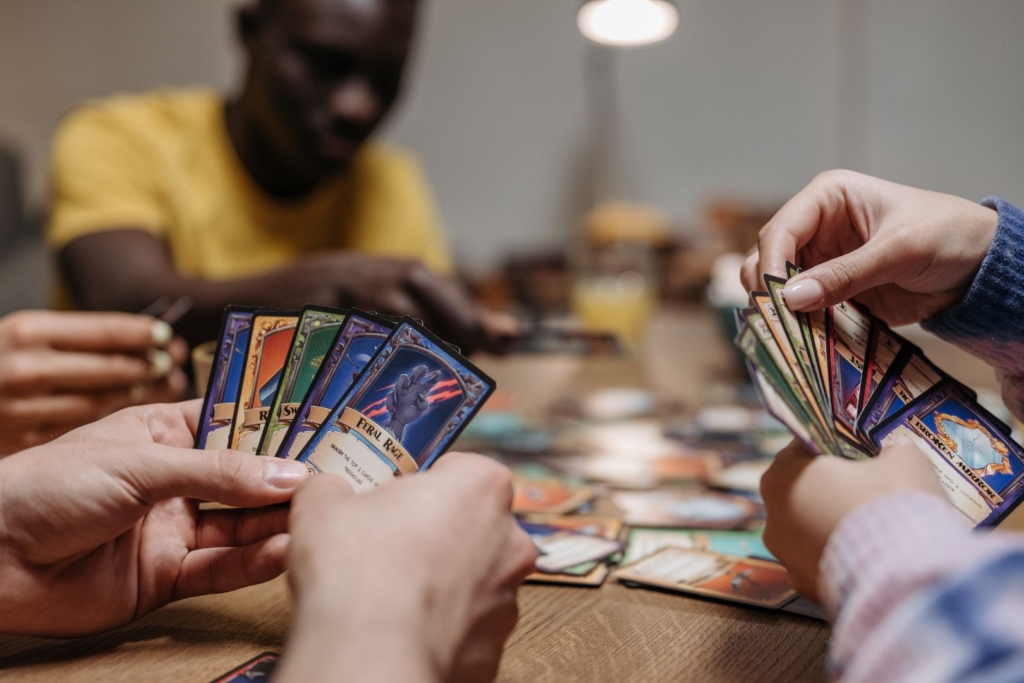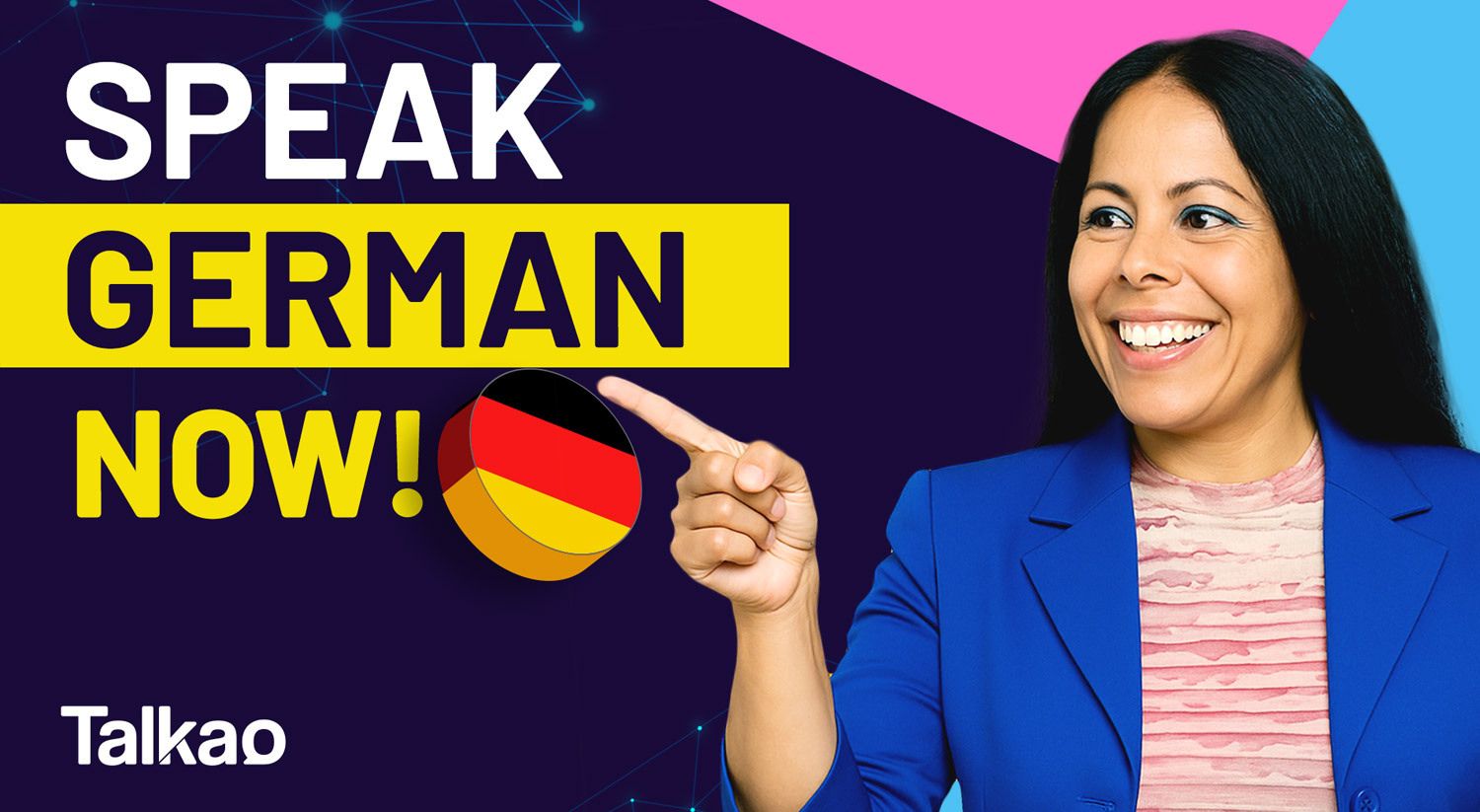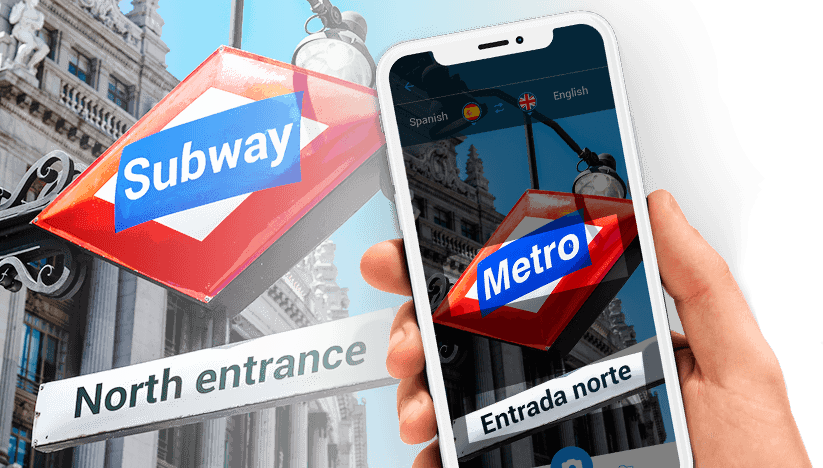
Language experts agree on the effectiveness of board games as a dynamic way to practice languages. But why exactly?
First of all, board games activate key areas of the brain responsible for cognition and memory. These games challenge you to think quickly—often under time pressure—which stimulates mental agility. Additionally, they introduce a competitive element, awakening the brain’s most primitive survival mechanisms, which heightens focus and engagement.
However, the most powerful aspect of using board games to learn and practice languages lies in their very nature: they’re games! That means they give you the chance to relax, have fun, and trigger the production of “happy hormones” like dopamine and endorphins. As we’ll explore later, this emotional response is crucial for deep and lasting learning.
In today’s article, we’ll look at some of the most effective board games to practice any language. Plus, you’ll discover how AI-powered predictive translation and accurate machine translation can become valuable tools to support your learning.
Let’s have fun, learn, and practice languages through the power of board games!
Why board games can be powerful language learning tools
Learning a language doesn’t always have to be tied to rigid methods, grammar books, or endless vocabulary lists. In recent years, entertainment has proven to be a powerful path to language acquisition. Without a doubt, language skills can be greatly enhanced with dynamic tools like board games.
Have you ever thought a simple game night could improve your language skills? Let’s explore why board games are far more than just a form of leisure. In fact, they can become an effective and fun part of your language learning routine. Even more so when combined with AI-powered predictive translation tools—but more on that later. For now, let’s explore the role of games in learning.
Play as a natural learning mechanism
From childhood, play has been one of the main ways we acquire cognitive and social skills. In the context of language learning, this principle still holds true. Learning through play allows you to:
- Engage emotionally
- Maintain attention for longer
- Reduce anxiety related to making mistakes
Scientifically speaking, when you’re having fun, your brain releases dopamine, a chemical that enhances memory and retention. And not just dopamine—so-called “happy hormones” improve overall brain function. That’s why board games don’t just entertain—they stimulate active learning.
Additionally, relaxed and enjoyable experiences help reduce stress and anxiety. Unlike positive hormones, stress releases adrenaline and cortisol—two natural enemies of critical thinking. Why? Because they prepare your brain for primitive reactions: fight, flight, or freeze. That means your brain is blocked from absorbing information and shifts into survival mode.
But there’s more…

Why are board games so effective for language learning?
Board games are especially powerful tools for strengthening the four essential language skills: listening, reading, speaking, and writing. Here’s how they do it:
Vocabulary expansion
Many games involve cards with key words, phrases, or instructions that must be read or spoken. This repeated exposure to new terms in specific contexts helps you retain vocabulary in a meaningful way. And because some games involve speed, they also improve your accuracy with automatic translation.
Grammar practice in context
Instead of learning grammar rules in isolation, games allow you to apply grammar naturally in real-life situations. For example, games that require sentence construction or asking questions force you to use proper structures, boosting fluency. This is also one of the foundations behind AI predictive translation tools—and games help you remember grammar faster and for longer, in any language.
Real verbal interaction
In group games, communication is essential. You’ll need to negotiate, explain, ask questions, or debate—all in your target language. This creates a motivating and authentic conversational environment, helping your speaking skills grow naturally. And here’s a tip: try playing board games with native speakers. It may be a big challenge, but the results will be amazing.
Repetition without monotony
Games encourage natural repetition of words and structures. Immersed in the game dynamic, you won’t even realize how much you’re repeating—but you are! And that’s what strengthens long-term memory.
Still not convinced? Let’s take a look at even more advantages for your language journey.
Tangible benefits of using board games to learn languages
Beyond their playful nature, integrating games into your language learning routine offers a wide range of additional benefits. Think of board games as “knowledge pills” that bring you:
- Reduced anxiety: Playing creates a relaxed environment, which is key for better learning.
- Sustained motivation: Games spark interest and curiosity, keeping boredom at bay.
- Adaptability for all levels: There are games suited for beginners and advanced learners alike.
- Collaborative learning: Group play encourages teamwork and healthy competition, leading to real-life language interaction.
- Cognitive stimulation: Memory, focus, planning, and problem-solving are developed alongside language acquisition.
These principles lie at the core of AI-powered predictive translation tools. In fact, developers of translation AI are increasingly embracing play-based learning as a powerful educational approach. That’s why modern translation algorithms are becoming more natural, precise, and user-friendly.
Is learning more effective when it’s fun?
The answer is clear: Absolutely yes! Numerous studies in neuroeducation confirm that positive emotions enhance information retention. When you’re enjoying yourself, your focus increases naturally, and learning becomes a pleasurable experience.
Even more importantly, when content is tied to an emotional experience—like winning a game or solving a challenge—memory encoding becomes deeper, and your ability to retain information is multiplied.
So, if you associate language learning with fun and meaningful situations, you’re far more likely to absorb and remember what you learn.
But how exactly does your brain process this? Let’s find out.
Language learning: A challenge that can be fun
Learning a foreign language is often associated with boring theoretical classes. Repetitive exercises and endless vocabulary lists are part of the typical lesson—sound familiar? But when you introduce a playful element into your routine, you’re not just changing the method—you’re also transforming your motivation. By engaging in games, your focus comes naturally, your stress levels drop, and your mind becomes more open to learning without mental blocks.
Even more, board games encourage social interaction, problem-solving, and real-time decision-making. According to psychologists, these three elements are core pillars of effective learning. And when they’re developed in another language, your communication skills grow in a practical and organic way. Combined with AI-powered predictive translation tools, your progress can be even greater. Let’s take a look at the language skills board games help develop.
Reading comprehension: More than just following rules
One of the first skills activated during board games is reading comprehension. The rules, cards, boards, and instructions require careful attention. Naturally, this involves contextual understanding. Reading in a foreign language without direct translation forces you to infer meaning based on context, which is excellent practice for acquiring vocabulary and real-world grammar structures.
Some narrative or role-playing games go even further by presenting complex scenarios, detailed descriptions, or themed texts that enrich your vocabulary in a dynamic way. And don’t worry—AI translation tools like Talkao’s text features are there to support your reading and understanding at every level.
Active listening: Understanding to react
When you play board games in a group, listening becomes essential. You need to understand what others say to respond, adapt, or even anticipate their moves. This real-world listening context is key to language learning, simulating everyday scenarios like casual conversations, meetings, or verbal instructions.
Cooperative, trivia, or storytelling games also create an environment where every word matters. You’re not just hearing—you’re analyzing, reacting, and training your ear to different accents, speeds, and speaking styles.
Speaking with confidence
Speaking is often the most intimidating aspect of language learning. But in games, the pressure fades: speaking isn’t a test—it’s part of the fun. You’ll need to explain moves, ask for help, tell stories, negotiate, and more—all of which require you to use the language spontaneously and fluently.
This setting helps you practice real-life communication functions: describing, arguing, asking questions, and persuading. These abilities are often overlooked in traditional classes but are essential for actual fluency.
Writing as part of the game
While less common, some games involve writing words, sentences, or descriptions. These moments give you the chance to work on your spelling, structure, and vocabulary accuracy. You can also create your own board games as a learning tool—writing question cards, crafting instructions, or inventing scenarios. This adds a creative, productive layer to your language learning journey.
Mental agility: Thinking fast in a new language
One of the greatest benefits of playing games is that they push you to think and act quickly. This agility carries over to your language processing—finding words, building sentences, interpreting instructions, or mentally translating—all in a matter of seconds.
This kind of mental training helps improve your processing speed in a foreign language, which is essential for fluent and spontaneous communication in real life.
Now you’re probably wondering which board games to try first. Coming up next, we’ll share a curated list of highly recommended games—all of them bestsellers and easily available worldwide. Let’s dive in!

10 recommended board games to boost your language learning
As we’ve seen throughout this post, learning a language doesn’t have to be boring or repetitive. In fact, incorporating games into your study routine can mark a turning point in your progress. Board games, beyond being entertaining, are excellent tools to practice comprehension, vocabulary, grammar, and speaking skills in a new language.
Before we dive in, it’s worth noting that some of these games might go by different names depending on the country. Due to commercial or licensing reasons, the names may vary, but the core mechanics remain the same. That said, let’s explore some of the most recommended and highly rated games by language experts:
Scrabble
Scrabble is a timeless classic for language learners. This word-building game boosts your vocabulary, spelling, and mental agility. The version in your target language forces you to create words, search for synonyms, and think in correct structures. When played in a group, you can also learn new words from your opponents and reinforce vocabulary through visual and contextual cues.
There are digital versions that incorporate AI tools and automatic translation technology, making it perfect for solo play against smart opponents—ideal for sharpening your skills anytime.
Taboo
This game is perfect for improving verbal fluency. The goal is to make your teammates guess a word without using certain “taboo” words. This restriction pushes you to use synonyms, descriptions, and creative explanations, all of which help you express yourself more fluidly. It’s great for thinking quickly in another language and expanding your vocabulary in real time.
Dixit
Dixit is based on storytelling through abstract images. While it’s not directly focused on grammar or vocabulary, it strongly encourages creative thinking, sentence building, and emotional expression in the language you’re learning. It’s especially useful for developing narrative and descriptive abilities, both spoken and written.
Pictionary
If you struggle with fast expression or want to practice visual vocabulary, Pictionary is an excellent choice. You draw concepts and your teammates try to guess them, which requires quick interpretation of words and their visual representation. It’s ideal for language classes and study groups, engaging both visual and verbal memory simultaneously.
Story cubes
This simple yet powerful game uses dice with images. Roll them and create a story using the symbols shown. It’s perfect for practicing storytelling, verbal coherence, and grammar in context. You can play solo, using AI-powered predictive translation to guide your progress, or play in a group, adjusting the story complexity based on your language level.
Time’s up
Similar to Taboo, this game challenges your ability to summarize and explain concepts under pressure. It includes three rounds: free description, one-word clues, and charades. Each phase enhances a different language skill. It’s excellent for reinforcing key vocabulary and practicing different forms of communication, especially at beginner and intermediate levels.
Codenames
Codenames is a word-association game that pushes you to think in synonyms, logic, and contextual links. Played in teams, you guess words based on one-word clues from your partner. This strengthens semantic understanding and linguistic agility. Playing it in another language trains you to recognize subtle connotations and connections often overlooked in traditional classes.
Guess who?
This classic game is ideal for beginners. It helps you practice questions, physical descriptions, and basic vocabulary. The gameplay involves asking yes-or-no questions to guess your opponent’s character, reinforcing simple sentence structures and the use of adjectives. Great for children or anyone starting out in a new language.
Apples to Apples
This concept-association game has players match nouns to adjectives based on the judge’s interpretation. The key is explaining why one word fits another, which boosts comprehension and verbal expression. It’s an excellent opportunity to explore nuance and informal usage, especially at intermediate and advanced levels.
Jeopardy!
Based on one of the most iconic game shows, Jeopardy! is also available in multiple board game versions across different languages. The premise is to guess the question based on the answer, which helps reinforce your understanding of associations and logic in your target language. Combine it with AI-powered translation dictionaries, and it becomes a highly effective learning tool.
By integrating these board games into your study routine, you’ll make your language learning more dynamic, effective, and fun. Whether you’re studying solo or in a group, games are a powerful resource to build fluency in a natural, enjoyable way.
Learning through play… An extra boost
Who said learning has to be boring? As we’ve seen, learning becomes easier when it’s fun. And board games are the perfect excuse to socialize, strengthen connections, and break the ice—especially if you’re in a new country and learning a foreign language.
In addition, if things get tricky during the game, you’ll always have support at hand. Talkao’s apps and features use AI-powered predictive translation technologies to help you:
- Improve your comprehension and pronunciation: Apps like Talkao Translate and real-time translation tools are ideal. You’ll be able to correct your mistakes and train your ear for natural pronunciation. Over time, these skills will improve exponentially.
- Correct your spelling and grammar: Writing in a new language can be complex. But with tools like Talkao’s text translation and camera translator, you’ll be able to practice and improve progressively and effectively.
- Expand your vocabulary: Talkao’s dictionaries and smart books are designed to boost your vocabulary and reading comprehension. Every new word becomes another step in your learning journey.
So… play and have fun! There’s no better learning experience than a great game night with new friends.










Newsletter